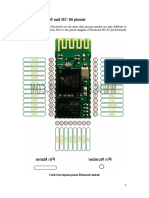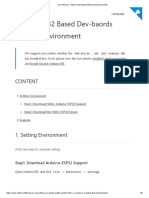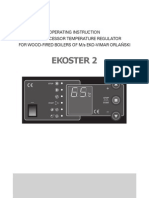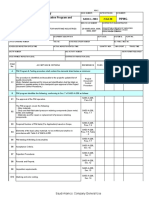/* Example from Sandeep Mistry
* With mods from AliExpress/LilyGo docs
* For TTGo ESP32 LoRa-OLED board
* http://www.lilygo.cn/down_view.aspx?TypeId=11&Id=78&Fid=t14:11:14
* Based on SX1276 LoRa Radio
* http://www.semtech.com/apps/product.php?pn=SX1276
* RMB 29Nov2017
*/
#include <SPI.h>
#include <LoRa.h> // https://github.com/sandeepmistry/arduino-LoRa
#include <U8g2lib.h> // https://github.com/olikraus/U8g2_Arduino
// #include <U8x8lib.h>
#define OFF 0 // For LED
#define ON 1
// SPI LoRa Radio
#define LORA_SCK 5 // GPIO5 - SX1276 SCK
#define LORA_MISO 19 // GPIO19 - SX1276 MISO
#define LORA_MOSI 27 // GPIO27 - SX1276 MOSI
#define LORA_CS 18 // GPIO18 - SX1276 CS
#define LORA_RST 23 // GPIO14 - SX1276 RST
#define LORA_IRQ 26 // GPIO26 - SX1276 IRQ (interrupt request)
// I2C OLED Display works with SSD1306 driver
#define OLED_SDA 21
#define OLED_SCL 22
#define OLED_RST 23
/* Pick One. Hardware I2C does NOT work! This article helped:
https://robotzero.one/heltec-wifi-kit-32/
* TTGo boards similar to Heltec boards, LED_BUILTIN = 2 instead of pin 25
* Some OLED displays don't handle ACK correctly so SW I2C works better. Thank you
Olikraus!
* TTGo OLED has pin 16 reset unlike other OLED displays
*/
// UNCOMMENT one of the constructor lines below
//U8X8_SSD1306_128X64_NONAME_SW_I2C Display(/* clock=*/ OLED_SCL, /* data=*/
OLED_SDA, /* reset=*/ OLED_RST); // Unbuffered, basic graphics, software I2C
//U8G2_SSD1306_128X64_NONAME_1_SW_I2C Display(U8G2_R0, /* clock=*/ OLED_SCL, /*
data=*/ OLED_SDA, /* reset=*/ OLED_RST); // Page buffer, SW I2C
U8G2_SSD1306_128X64_NONAME_F_SW_I2C Display(U8G2_R0, /* clock=*/ OLED_SCL, /*
data=*/ OLED_SDA, /* reset=*/ U8X8_PIN_NONE); // Full framebuffer, SW I2C
const int blueLED = 25; //25 for v.16 oled, 14 for ttgo beam gps
String rssi = "";
String packet = "";
void setup() {
Serial.begin(115200);
while (!Serial);
Serial.println("LoRa Receiver");
Display.begin();
Display.enableUTF8Print(); // enable UTF8 support for the Arduino print()
�function
Display.setFont(u8g2_font_ncenB10_tr);
// Very important for SPI pin configuration!
SPI.begin(LORA_SCK, LORA_MISO, LORA_MOSI, LORA_CS);
// Very important for LoRa Radio pin configuration!
LoRa.setPins(LORA_CS, LORA_RST, LORA_IRQ);
pinMode(blueLED, OUTPUT); // For LED feedback
if (!LoRa.begin(921000000)) {
Serial.println("Starting LoRa failed!");
while (1);
}
// The larger the spreading factor the greater the range but slower data rate
// Send and receive radios need to be set the same
LoRa.setSpreadingFactor(12); // ranges from 6-12, default 7 see API docs
}
void loop() {
// try to parse packet
int packetSize = LoRa.parsePacket();
if (packetSize) {
// received a packet
Serial.print("Received packet '");
digitalWrite(blueLED, ON); // Turn blue LED on
// read packet
packet = ""; // Clear packet
while (LoRa.available()) {
packet += (char)LoRa.read(); // Assemble new packet
}
rssi = LoRa.packetRssi();
// Display Info
Display.clearBuffer();
Display.setCursor(0,12); Display.print("LoRa Receiver");
Display.setCursor(0,26); Display.print("Received packet:");
Display.setCursor(0,42); Display.print(" '" + packet + "'");
Display.setCursor(0,58); Display.print("RSSI " + rssi);
Display.sendBuffer();
digitalWrite(blueLED, OFF); // Turn blue LED off
Serial.println(packet + "' with RSSI " + rssi);
}
}
























































































